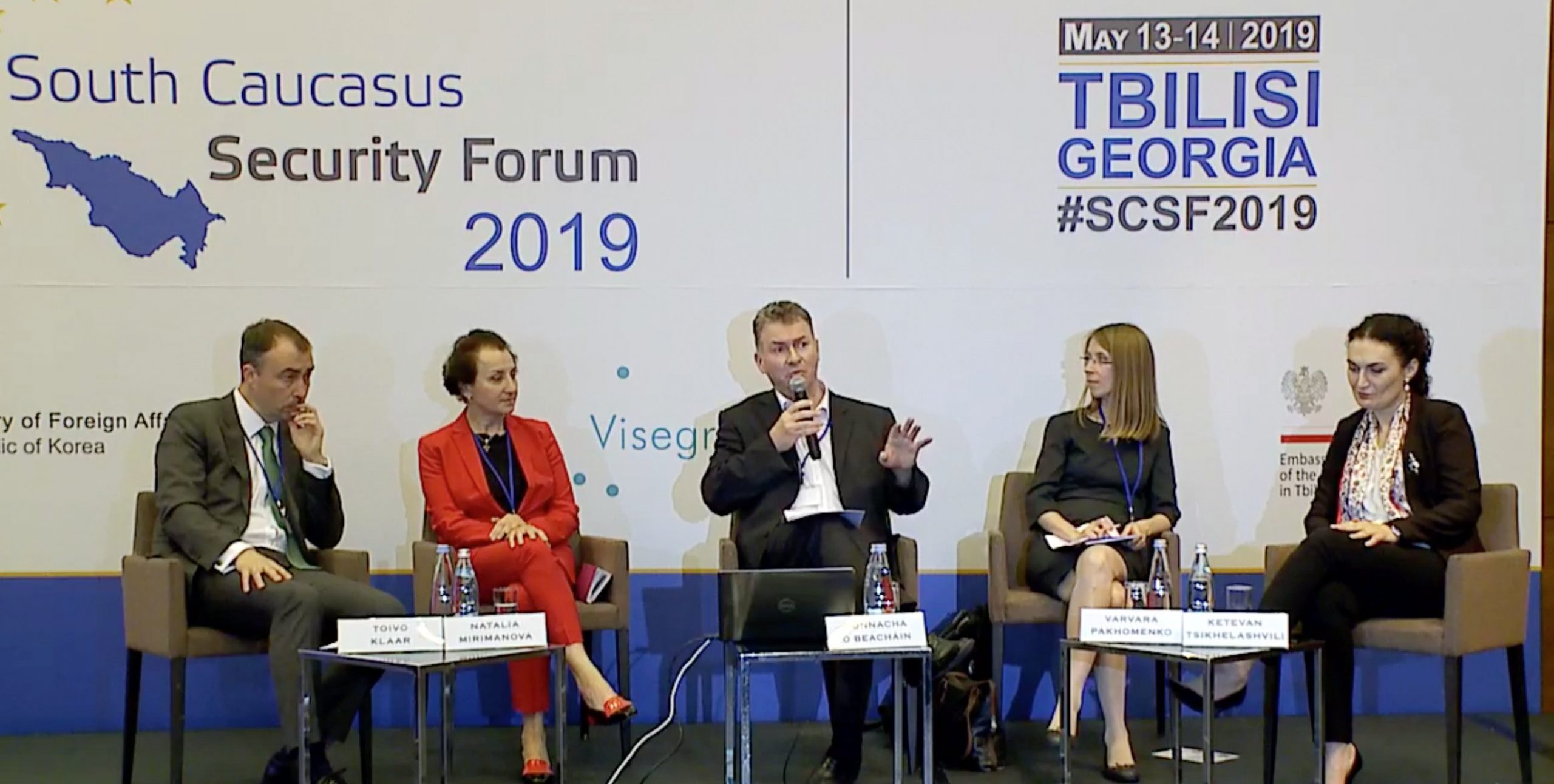Author: Donnacha Ó Beacháin, Professor of Politics at Dublin City University
Georgia is on our minds in Ireland but for the wrong reasons. Earlier this month, the Georgian ambassador, wrote a three-page letter to the president of Dublin City University (DCU) complaining that students taking a module I teach entitled “Russia and the former Soviet Space” were being forcibly brainwashed with Russian propaganda. To sustain this allegation, the ambassador cited the invitation extended to an eminent Russian professor to speak with students. The embassy had also gone to the trouble of trawling through optional assignment topics in order to tell our university what was permissible to ask students and what was not. The letter from the Georgian ambassador called on the DCU president to take action and was copied to other leaders within the university. It was also (bizarrely) copied to senior figures in Ireland’s Ministry of Foreign Affairs. The pressure of space does not permit me to outline all aspects of this case but I have highlighted some pertinent facts in a thread on Twitter.
To put things in perspective, this was the first Russian professor I ever invited to address the module and he spoke for one hour. By contrast, during recent years I have facilitated 13 hours of guest lectures from Georgian professors, including a former ambassador, minister, and MFA director. In fact, the only sitting ambassador ever invited to my classroom is the current one from Georgia.
The Georgian ambassador’s intervention has provoked strong criticism in Ireland. On national radio, the Minister for Higher Education characterized such attempts to interfere with academic freedom as ‘most unwelcome.’ The same Minister said he stood ‘full square behind Dublin City University in terms of academic independence.’
As one governing party MP emphasized ‘academic freedom and independence are central parts of our universities & democracy [that] can’t be censored to suit political or commercial sensitivities.’ One former Minister for Europe described the situation as ‘ridiculous.’ Throughout the academic community and civil society more generally there was an outpouring of indignation. In a letter to the Georgian ambassador, the largest trade union in Ireland described ‘such political interference and suggested threats’ as ‘unacceptable to our members, as it is to civil society across Ireland.’ The union called on the ambassador to withdraw his letter.
In sum, the Georgian ambassador’s actions have been rightly characterized as an unwelcome attack on academic freedom in Ireland by the representative of a foreign government.
So why should this matter to people back in Georgia? Georgia has some very real enemies but if its representatives cannot distinguish those from proven friends, this country is in trouble. It is also a rather basic mistake to confuse the role of an embassy – which is to promote an official government position – and a university, which is to enhance critical thinking skills, not least by challenging students to understand multiple perspectives.
The Director of our Conflict Institute at DCU has asked the Georgian ambassador to clarify whether he was acting on his own initiative or on the instructions or approval of his government. If the latter, the ambassador was informed that we would feel obliged to alert European colleagues with whom we work on Horizon Europe and Erasmus projects that working with partners from Georgia may now be problematic. Especially in the context of the EU’s absolute commitment in its work and external relations to European democratic values. The ambassador has yet to respond to this request for clarification.
In terms of EU-funded research and education programs under Horizon 2020 alone Ireland and Georgia have collaborated in 18 projects, valued at more than €344 million. Through DCU I am a leader in four of these projects. The inclusion of Georgian partners in our projects was very much at my initiative given my long years working with Georgian scholars and institutions.
I first started to live and work in Georgia 21 years ago. My mission with the Civic Education Project was to assist in the reform of higher education reform as the social sciences had been hollowed out by Soviet-era politicization and endemic corruption. The students I had the pleasure of teaching in Georgia were among the best I ever encountered; many went on to be prominent figures in politics and civil society. Since then, in every year before the pandemic, I have spent weeks or usually months in Georgia. I have pushed hard to have Georgian partners included in all of DCU’s EU-funded projects. In short, my connection to Georgia, as anyone who knows me will testify, is strong and deep. Indeed, my daughter was born in Georgia.
During my last visit to Tbilisi in 2019 as an invited chair at the Caucasus Security Forum, I began by expressing my wish that Georgia would one day join the EU. That remains my hope. But whether that actually comes to be depends less on the EU and more on Georgia or, more accurately perhaps, the actions of those chosen to represent Georgia. “European values” are not something that can be cherry-picked by prospective EU members. It’s a package and academic freedom is part of the deal. These values also extend to gender equality, equality for LGBT, and minority rights of various kinds. If EU membership is the aim, these are the means. Subscribing to “European values” is not simply a matter of declarations. To be credible they have to be practiced.
